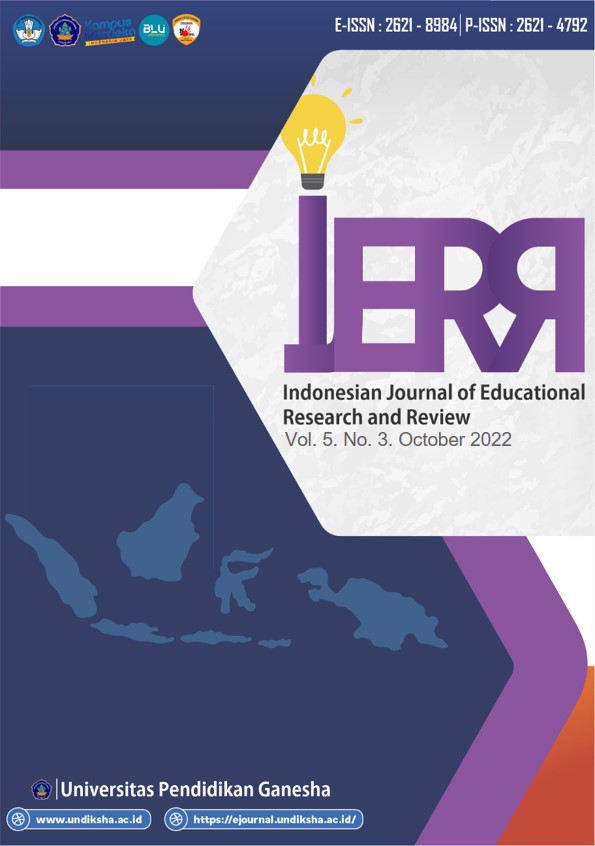Computer-Animation on NCE Students’ Academic Performance in Vertebrate Anatomy and Physiology in Colleges of Education
DOI:
https://doi.org/10.23887/ijerr.v5i3.52872Keywords:
Computer-Animation, Vertebrate Anatomy and Physiology, Students’ PerformanceAbstract
The low ability of students causes students to have difficulty understanding some Biology concepts. In addition, the time given for biology practicum is still limited. The purpose of this study was to analyze the differences in biology students' performance when taught VAP using animation packages and lecture methods. This study adopts a quasi-experimental design. The population in this study was 60 Biology students. The method used to collect data is observation, questionnaires, and tests. The instruments used in collecting data were questionnaires and question sheets. The technique used to analyze the information is inferential statistical analysis. The study results showed a significant difference between the performance of Biology students when taught VAP using the animation package and the lecture method supporting the experimental group. Thus, this research concludes that the animation strategy improves Biology students' performance in VAP. The implication is that learning strategies play a positive role in the teaching and learning of Biology in higher education institutions. The study recommends that higher education Biology lecturers be encouraged to incorporate animation packages into Biology teaching.
Downloads
Published
How to Cite
Issue
Section
License
Copyright (c) 2022 N. A. Ala, A. M. Ishyaku, S. B. Adamu, A. O. Onojah

This work is licensed under a Creative Commons Attribution-ShareAlike 4.0 International License.
Authors who publish with the Indonesian Journal of Educational Research and Review (IJERR) agree to the following terms:
- Authors retain copyright and grant the journal the right of first publication with the work simultaneously licensed under a Creative Commons Attribution-ShareAlike 4.0 International License. that allows others to share the work with an acknowledgment of the work's authorship and initial publication in this journal.
- Authors are able to enter into separate, additional contractual arrangements for the non-exclusive distribution of the journal's published version of the work (e.g., post it to an institutional repository or publish it in a book), with an acknowledgment of its initial publication in this journal.
- Authors are permitted and encouraged to post their work online (e.g., in institutional repositories or on their website) prior to and during the submission process, as it can lead to productive exchanges, as well as earlier and greater citation of published work. (See The Effect of Open Access)









